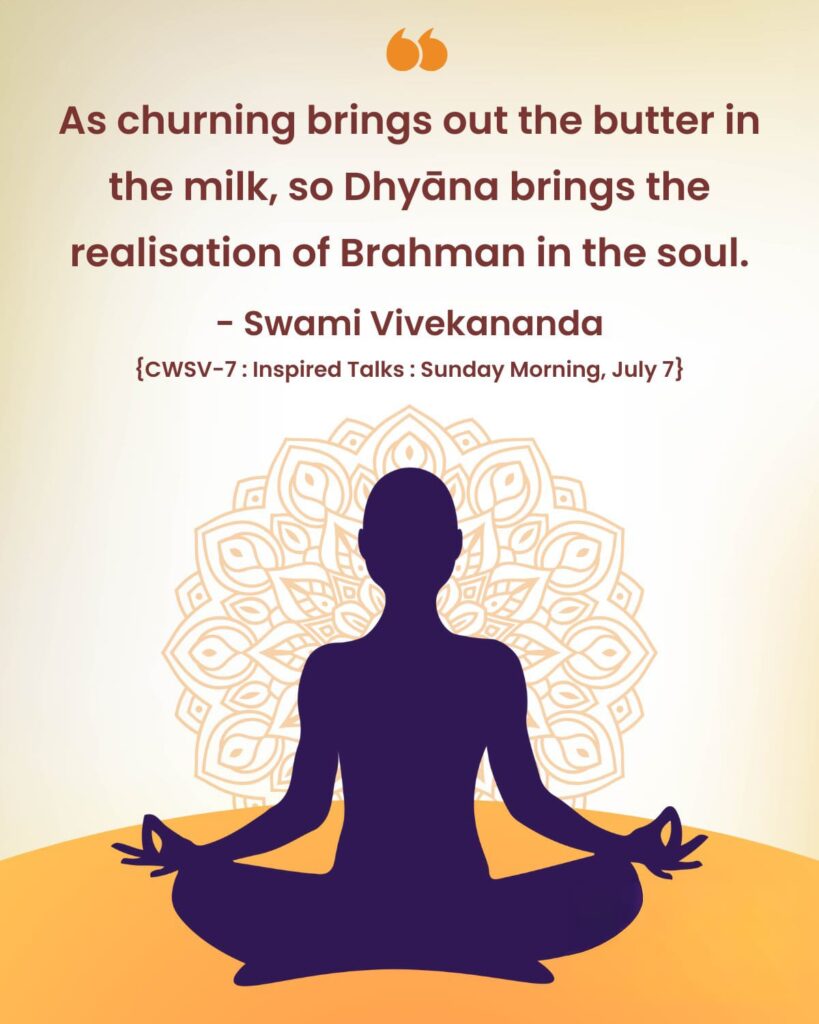प्रयत्नाद्यतमानस्तु योगी संशुद्धकिल्बिष: |
अनेकजन्मसंसिद्धस्ततो याति परां गतिम् || 45||
prayatnād yatamānas tu yogī sanśhuddha-kilbiṣhaḥ
aneka-janma-sansiddhas tato yāti parāṁ gatim
prayatnāt—with great effort; yatamānaḥ—endeavoring; tu—and; yogī—a yogi; sanśhuddha—purified; kilbiṣhaḥ—from material desires; aneka—after many, many; janma—births; sansiddhaḥ—attain perfection; tataḥ—then; yāti—attains; parām—the highest; gatim—path
Translation:
Practising assiduously, the yogi having acquired perfection through many births attains the supreme state (Moksha) purified of all sins.
Commentary:
The yogi reaches the highest state by assiduous practice through several births. Three factors are mentioned here – 1. Assiduous striving, 2. Continued practice 3. Purity.
The weak and the cowards cannot reach the goal. “The weak cannot realise Atma. The heroic man realises the Supreme self”-Thus the Upanishads declare that strength and courage are essential for spiritual realisation.
If the yogi acquires such strength, courage, and perseverance in yoga, it is the result of continued practice through several births. Birth as man, desire for liberation, are the reward of good work done in the past. It does not mean that one has to wait for a long series of births to attain freedom. No. It can be achieved even in this birth, nay even in this hour, if the will is strong and the effort adequate. When the Lord speaks of several births, it is only to emphasise that the good work done in the past never goes to waste. He does not want the man to postpone the glorious consummation even by a second. Since no one knows what he has done in the past, let him have faith that the best would bear fruit now and take him to the highest state.
Purity of mind has been mentioned as essential for Self-realisation in many places in the Gita. By Nishkama Karma, devotion, discrimination, and knowledge, man should purify his inner self, before he could experience any spiritual enlightenment.
Supreme State: Moksha is the highest state. There is nothing higher than that because it is the state of absolute freedom. All other states are conditioned by time, place and other limiting adjuncts. Moksha is beyond all relative values. The law of causation which binds everything is transcended by the yogi when he reaches the highest state. Freedom is the birth-right of man, the one urge promoting him in all that he does, though he is not conscious of it. Yoga is the direct path to freedom.
Swami Vivekananda Says —
Just take your own case — do you think it is possible without the grace of God to have the blessed company of Nag Mahashaya, a man who rose to spiritual perfection through the strength of divine grace and came to know fully what this grace really means? “One attains the highest stage after being perfected by the practice of repeated births.” It is only by virtue of great religious merit acquired through many births that one comes across a great soul like him. All the characteristics of the highest type of bhakti, spoken of in the scriptures, have manifested themselves in Nag Mahashaya. It is only in him that we actually see fulfilled the widely quoted text, तृणादपि सुनीचेन. (*) Blessed indeed is your East Bengal to have been hallowed by the touch of Nag Mahashaya’s feet![Source]
Question: What is the highest state?
Answer: Self-realisation, Moksha.
Question: How does man attain it?
Answer: By continued practice, ardent striving, and purity man realises the supreme state.
Bhagavad Gita: Chapter 6 🔻 (47 Verses)

